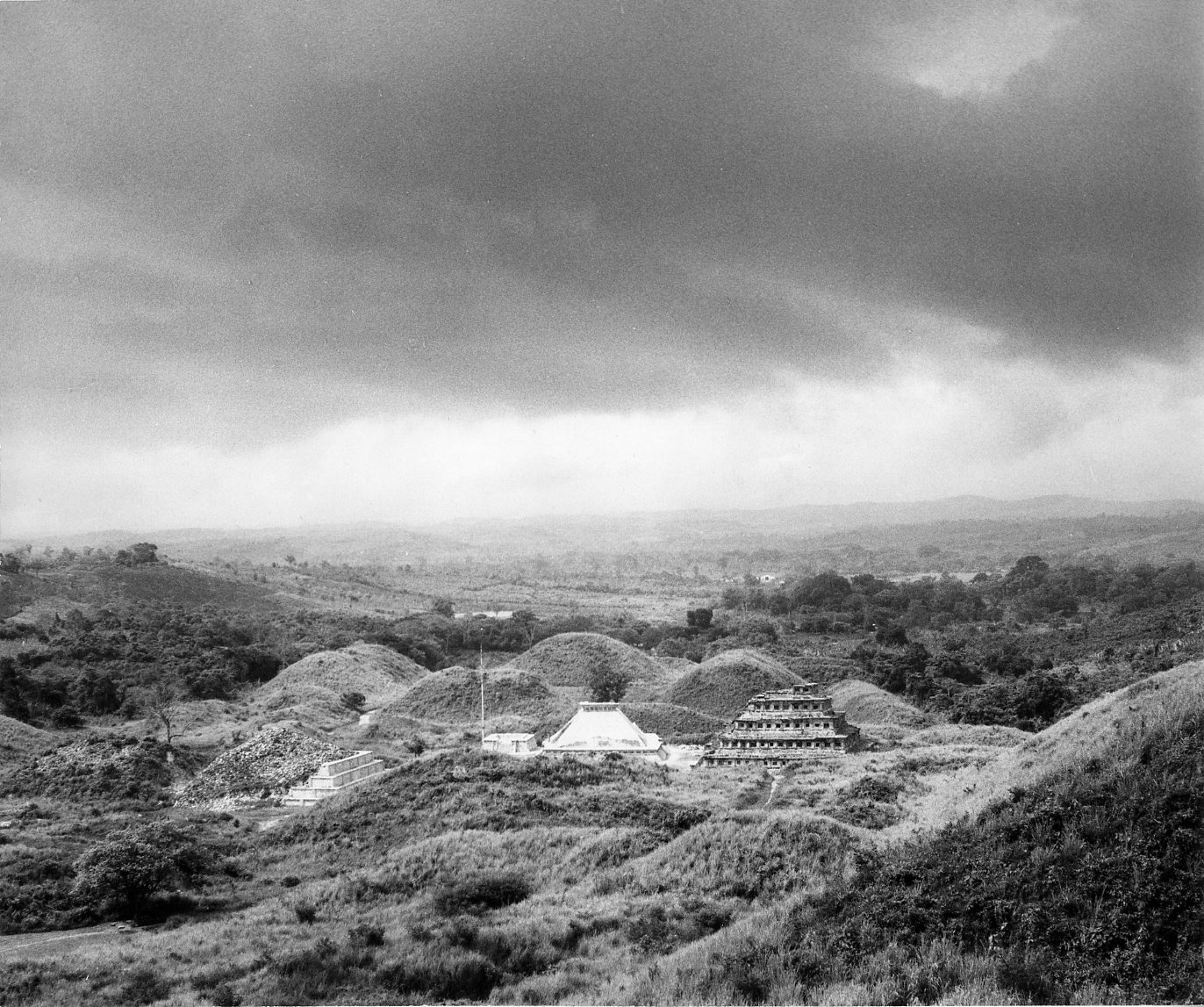August 1, 2018 - TBD
Mint Museum Randolph

South Ball Court Panel 4 drawing by Michael Edwin Kampen. |
 Photograph of Tajín, Central Plaza by Michael Edwin Kampen, circa 1967. Photograph of Tajín, Central Plaza by Michael Edwin Kampen, circa 1967. |

Map of Mesoamerica from The State Of Veracruz, blog post on Cocomagnanville
|
El Tajín is a Mesoamerican archaeological UNESCO World Heritage Site located in northern Veracruz, Mexico. It's pinnacle was reached during the period of 800-1200 AD. The city was abandoned after 1200 AD when the Aztec empire began its reign. Many scholars believe that the Totonacs constructed Tajín, because they were the inhabitants when the Spaniards landed on the coast of Mexico in the 16th century. The site is home to hundreds of carved sculptures which, unfortunately, have deteriorated over time due to acid rain and wind erosion. Created by Michael Edwin Kampen, now a retired professor emeritus of art history, the drawings are arguably the best representations in existence of the site sculptures at El Tajín. This installation focuses on a selection of photographs and ink on vellum drawings which Michael Kampen created to illustrate his doctoral thesis, The Sculptures of El Tajín, Veracruz, Mexico.
The black & white photographs range from views of the entire site to individual sculptures. Due to the damaged nature of the sculptures, the photographs themselves could not capture the sculptures sufficiently for scholarly study. Dr. Kampen used his scaled photographs and transferred each photograph into meticulous line drawings in order for the weathered sculptures become more distinct. He completed over 250 drawings with a wide range of content, including scenes depicting sacrifice and gods as well as many of the abstract, repetitious patterns. Some of the most well known sculptures are the ball court panels which display some of the rituals regarding sacrifice to the players. The courts were used for ullamaliztli, commonly known as the ball game. Many sculptures are fragments, but a substantial number illustrate remarkable figurative imagery offering the opportunity to explore the culture and civilization of El Tajín. Michael Edwin Kampen taught for many years at UNC-Charlotte, has authored numerous art history texts including Art Beyond the West, a standard text in non-Western art, and currently lives in Asheville, NC.
Online Resources
Search MARCO: The Mint Art Research Catalog Online to find more print resources available in the Mint Museum Library.
- The Sculptures of El Tajín, Veracruz, Mexico by Michael Edwin Kampen
- Tajín by Brüggemann, Jürgen K.
- Lightning Gods and Feathered Serpents by Rex Koontz
________________________________________________________
Created by Stephen Garza, Intern for The Mint Museum Library, Spring 2018.